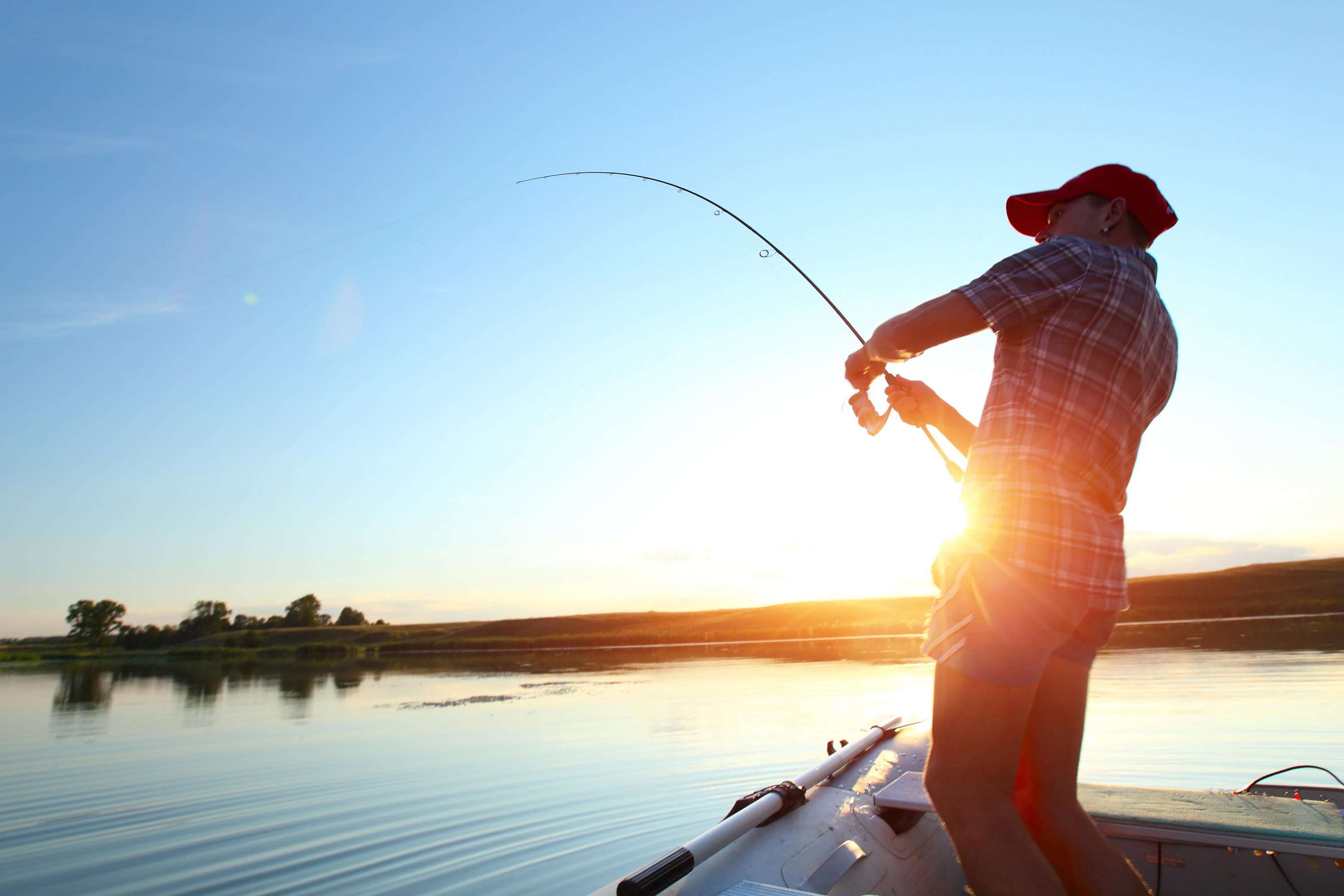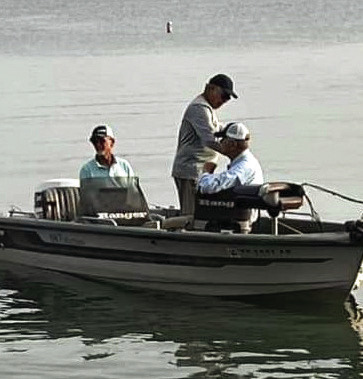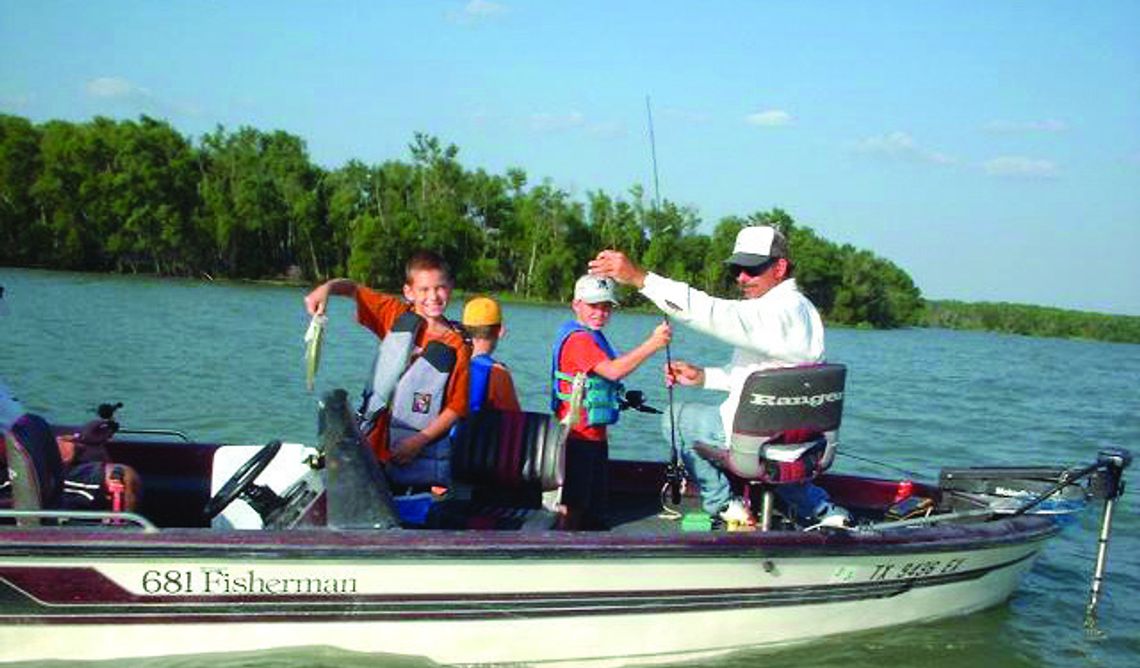Fishing guide Tommy Tidwell has been called 'the crappie king of Texas.” Crappie (pronounced “croppie”) is the most popular panfish in Texas, and Granger Lake north of Taylor is one of the top spots in the state to catch it.
For 37 years, Tidwell has been one of the lake's top fishing guides.

He didn’t start out to be a guide — for 43 years he taught high school biology, physics and chemistry — first at Round Rock High School, then at Georgetown East View High School. But his reputation as a fisherman led to guiding. He has been featured on television, in print and on YouTube.
'He could catch a limit with a diaper pin and a white feather,” the late Waco Tribune-Herald outdoor writer Earl Golding once wrote of Tidwell.
Tidwell said he got his start when he told a journalist he could catch 50 or 60 fish a day in Granger Lake — and then he proved it.
“He told me if I could catch fish like that, people would pay me to do it,” Tidwell said. “Then he wrote about me in the paper.”
After that, word of mouth led folks to seek him out.
But it takes more than a knack for catching fish and a freshwater-guide license from the Texas Parks and Wildlife Department to make a successful fishing guide.
Knowing the terrain is essential, and Tidwell knows Granger Lake like the back of his hand.
“I grew up here when they (Army Corps. Of Engineers) were building the lake. When I’m going across it, I can see what the bottom looked like when it was not a lake,” he said. “I’ve got 500 places I can catch a fish in Granger Lake, so I’ve never run out of good spots.”
A good guide knows his quarry, too. For Tidwell, it’s white bass, catfish and especially crappie.
“Crappie is a fish that has to be around or under something,” Tidwell said.
He has a simple approach to artificial structures to attract them — “plastic trees” made of things folks usually throw out.
“I explain to the customers we’re fishing at five-gallon buckets with Venetian blinds attached, or old water hose parts and swimming pool ladders. There's a spot where my friend dropped a lounge chair and those fish get all up under it, so we say, ‘We’re going to fish the lounge chair today.’” Knowing your equipment is another essential element of guiding.
“Today we fished about an hour and the steering cable in my trolling motor broke,” Tidwell said. “It took me about 20 minutes to go back to shore and take off the broken one and get my spare. I carry spare equipment. If a throttle cable breaks, I’ve got a coat hanger I can stick in there.”
Tidwell is a great example of another essential requirement for a successful guide — he’s an entertaining conversationalist; a perfect “people person.”
Patience, a sense of humor and a knack for storytelling are universal traits for successful guides, in the water or on land.
'The hardest part of being a guide is making sure you’re a people person,” said Jared McCulloch, owner of Rockport-based First Light Fishing Charters.
“Every group is different — I’ve got some customers that want to get ready for a big fish fry, and some catch-and-release guys. Whatever they want, you’ve got to be able to keep things jolly on board.”
Saltwater guides need an all-water fishing guide or all-water paddlecraft guide license. To captain a motorized boat requires a Coast Guard vessel operator’s license, which among other requirements, takes 200-plus hours underway on the water with the motor running.
“Picking where you’re going to fish out of and building your customer base” are also keys to success, McCulloch said.
“Port Aransas and Rockport have over 500 guides. That’s the largest single concentration of fishing guides in the United States,” he said. “You need to advertise.”
McCulloch likes having the company, even if it’s competition. With a degree in ranching and wildlife science, he was a hunting guide for years. But in off-season he missed the company.
'On a lease or a ranch you’re pretty far out from civilization. During the hunting season you socialize, but the rest of the year it’s pretty quiet. Running a fishing charter, you’re with people every day. It’s a great job — if you’re a people person,” he added.

It doesn’t take a special license to be a hunting guide in Texas, but it takes a special person. There are guides, and then there are outfitters, and most guides work for outfitters.
“The guide scouts the animals in the field; the outfitter does everything else,” said Rick Hodges of Texas Dove Hunts.
“It’s a hard (job) for a professional guide. You have to locate the game and know how to get ’em. You’re out with the hunter dawn to dusk, typically six days a week in the season,” Hodges said. “On a turkey hunt, you’re walking all day in rocky or sandy country, or you’re running behind quail dogs all day.”
“Aside from loving what you do, you have to have people skills. You have to be able to handle different personalities, and be ‘on’ for a whole season,” he added.
For Cline Strickland, “on” seems to be a natural state.
Strickland, a licensed chiropractor, traded in that life years ago. Today he owns Cline Kennel in Weatherford, where he breeds, raises and trains hunting dogs. He also builds custom hunting trucks and trailers, and outfits and guides quail hunts.
“It’s a fun profession, but it’s not for most people,” Strickland said.
“You have to be a good salesman. You’re dealing with people who can afford to pay. You’re an entertainer of sorts — a psychologist, a therapist. When someone misses the shot with the animal of a lifetime, they feel sick; when a child loses a big fish it can be just heart-breaking,” he said. “But it’s also a very bonding experience. You know more about people when you hunt with them, fish with them. The only thing that comes close to my best hunting friends are people I was in the military with.”
He added, “The two businesses that fail the most are hunting businesses and restaurants. When you’re self-employed, you start earlier and finish later. You get your stuff ready early and hunt all day, and in the evening, when people want to eat and laugh, you’re taking care of the camp and the dogs.”
According to Strickland, “And there are no guarantees. You depend on the animals, the weather, your equipment. And sometimes Mother Nature laughs at you. I have a friend who’s an elk hunting guide, and he says it’s the worst hunting season he’s ever seen — so far he’s zero elk for five hunts.”
But the job has its advantages, he added.
“It’s not an easy way to make a living,” Strickland said, “but it can be very fulfilling. Some people like a routine, but for me life is an adventure every day.”








Comment
Comments